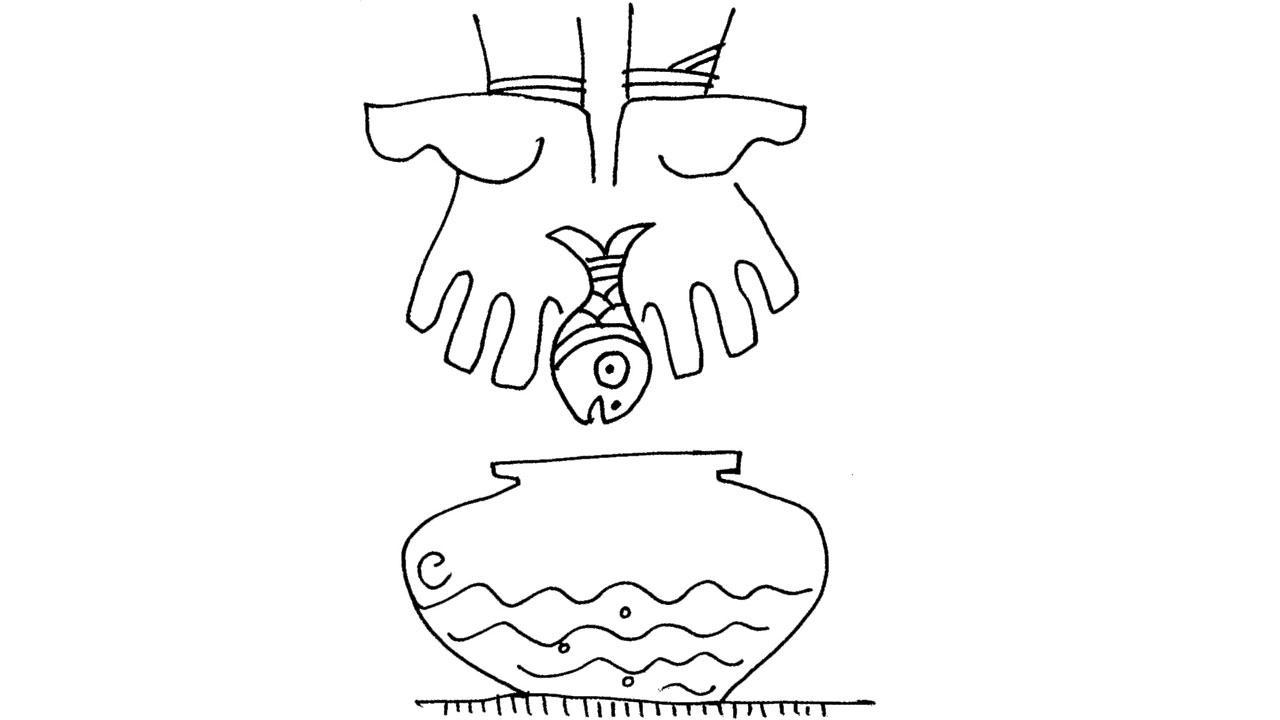Dharmo Rakshati Rakshitha
Updated On: 29 August, 2021 06:53 AM IST | Mumbai | Devdutt Pattanaik
In the jungle there are no rules, the strong can claim any territory and eat the weak

Illustration/Devdutt Pattanaik
Dharmo Rakshati Rakshitha is a line that is found in Manusmriti. If you assume dharma to be religion or state or law, it means if you protect religion or state or law, the religion/state/law will protect you. Why does religion or state or law exist?
In the jungle there are no rules, the strong can claim any territory and eat the weak. Imagine a society without rules. Anybody can claim your property. Anybody can take what you have and you can do nothing about it. The whole purpose of rules is to protect the weak. That is why in ancient times the rishis created the Raja. Raja is someone who prevents arajakta, a Sanskrit word meaning a state of anarchy, lawlessness and disorder. Raja establishes rules that make people respect each other’s property. That’s dharma.



